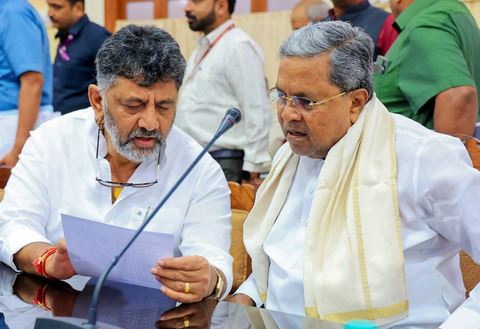Bengaluru: The Congress government in Karnataka Wednesday defended its move to reserve jobs in private sector for Kannadigas in the state, even as industry veterans objected to the proposed quota, calling it ‘fascist,’ and ‘short-sighted.’
The government also sought to reach out to the private sector, saying their interests will be protected.
The state cabinet Monday cleared the Karnataka State Employment of Local Candidates in the Industries, Factories and Other Establishments Bill, 2024, making it compulsory for private firms to reserve jobs for Kannadigas in their establishments. It is likely to be tabled in the Assembly Thursday.
“Any industry, factory or other establishments shall appoint fifty per cent of local candidates in management categories and seventy per cent in non-management categories,” the bill read.
If the candidates do not possess a secondary school certificate with Kannada as a language, they should then pass a Kannada proficiency test as specified by the ‘Nodal Agency’, it added.
The nodal agency will have power to call for any records, information or documents in the possession of an employer occupier or manager of an establishment for the purpose of verifying the report.
The Government may appoint an officer not below the rank of Assistant Labour Commissioner as the authorised officer regarding compliance of the provisions of the Act.
Any Employer or Occupier or Manager of an Establishment, who contravenes the provisions of this Act should be liable for a penalty between Rs 10,000 to Rs 25,000.
Hailing the bill, Karnataka Deputy Chief Minister DK Shivakumar said: “The Congress came to power in Karnataka to uphold the dignity of the Kannadigas–be it the issue of signboards of private establishments, the Kannada flag, Kannada language, culture, documents or specific percentage of reservation in jobs for Kannadigas.”
Minister for Infrastructure Development, Medium and Heavy Industries M B Patil also backed the bill saying there is no doubt that Kannadigas should get jobs in Karnataka.
He, however, underlined that the interests of the industries will also be safeguarded.
“In private sector, certain ranks of posts will be reserved 100 per cent for Kannadigas. The interests of industries will also be protected.”
In a statement issued by his office, the Minister was quoted as saying that he will discuss with Chief Minister Siddaramaiah, IT-BT, Law and Labour Ministers in the event of any confusion in the bill.
“The government will also work on the skill development of Kannadigas. We cannot miss the bright opportunities of manufacturing sector and industrial revolution,” he said.
The government is committed to protect the interests of the local residents as well as the industries.
“This bill will be discussed with all concerned. There is no need to worry in this regard,” Patil said.
The move, however, has not gone down well with industry leaders.
Well-known entrepreneur and former Chief Finance Officer of Infosys, TV Mohandas Pai dubbed the bill as ‘fascist.’
“This bill should be junked. It is discriminatory, regressive and against the constitution, @Jairam_Ramesh (Congress leader) is govt to certify who we are? This is a fascist bill as in Animal Farm, unbelievable that @INCIndia can come up with a bill like this- a govt officer will sit on recruitment committees of private sector? People have to take a language test?” Pai said on ‘X’.
Pharma company Biocon Managing Director Kiran Mazumdar Shaw said, “As a tech hub we need skilled talent and whilst the aim is to provide jobs for locals, we must not affect our leading position in technology by this move. There must be caveats that exempt highly skilled recruitment from this policy.”
ASSOCHAM, Karnataka co-chairman R K Misra said on ‘X’, “Another genius move from Govt of Karnataka. Mandate LOCAL RESERVATION & APPOINT GOVT OFFICER IN EVERY COMPANY to monitor. This will scare Indian IT & GCCs. Short-sighted.”
Karnataka’s move is similar to a bill introduced by the Haryana government, mandating 75 per cent reservation in private sector jobs to the residents of the state. It was, however, struck down the Punjab and Haryana High Court November 17, 2023.
PTI







































